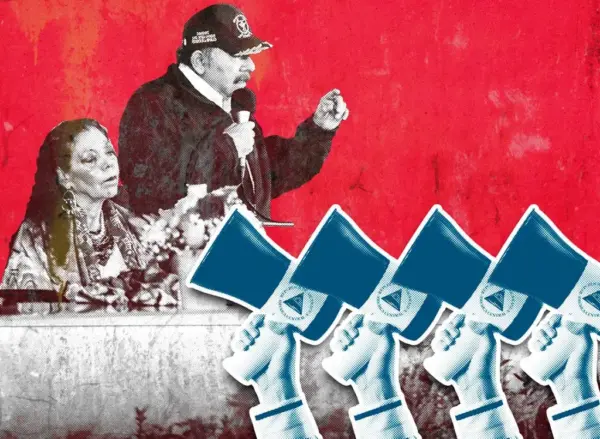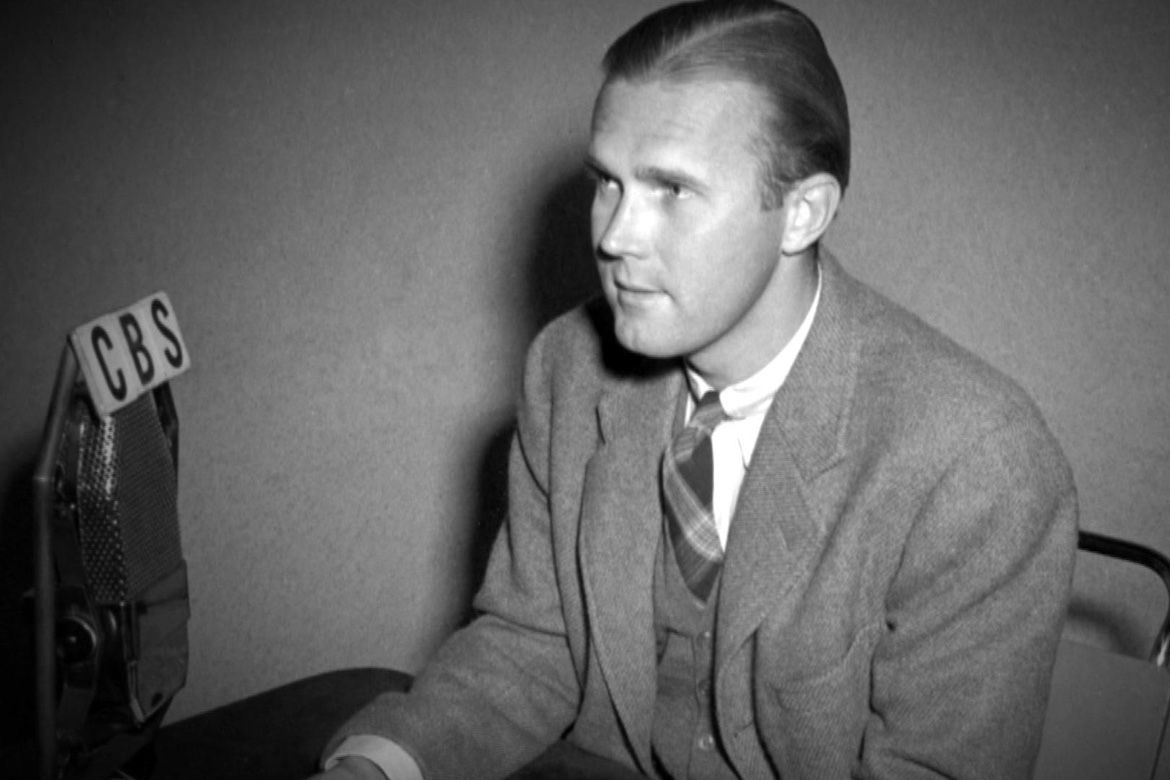
‘Murder the Truth’ examines growing effort to silence journalists and curtail free speech
March 17, 2025
Ortega’s War on Journalism in Nicaragua
March 25, 2025March 19, 2025 – Source: Pappas Post –
In May 1948, the body of CBS correspondent George Polk was found floating in Salonika Bay, Greece. His hands and feet were bound and he had been shot in the back of the head. It is widely accepted that he was assassinated, but the mystery of who did it remains unsolved.
Polk, 34 years old, was a rising star at the network and was preparing to return to the United States to take up a Nieman Fellowship at Harvard University. Seven months before his death he had married Rea Coconis, a Greek national.
He was widely known for his work in the Middle East and most especially for his dispatches from Greece, then in the throes of a civil war. His coverage had revealed the corrupt and authoritarian nature of the Greek regime, which was supported by London and Washington in its struggle against communist insurgents including partisans who fought against the fascist occupiers in World War II.
His death raised a troubling question in the larger geopolitical context: if the Athens regime was implicated in the murder, how could the Truman Administration possibly support it? I.F. Stone, the independent investigative journalist, called Polk’s death “the first casualty of the Cold War.”
The Greek regime sought to blame the communists. Word mysteriously leaked out that Polk had been on his way to interview Markos Vafiadis, the communist resistance leader. A Greek journalist, Gregorious Staktopoulos, was tried for the murder and convicted, but in 1968 he recanted his confession, saying it was extracted under torture. He was later exonerated by the Greek Supreme Court. If the trial was bogus, then so, too, in all likelihood was the story that Polk had been en route to a meeting with the communist guerrillas.
Others theorized that it was more likely that Polk was murdered by right-wing groups within the Greek government or close to it. Investigations to get at the truth invariably ran into stonewalls.
One was undertaken by a “Newsmen’s Commission,” representing a collection of news organizations and various journalists including Ernest Hemingway, William Polk (George’s brother), Homer Bigart of The New York Herald Tribune, and William Price of The New York Daily News. Another involved a band of influential American publishers and journalists headed by Walter Lippman that also included James Reston of The New York Times. They got nowhere.
No attempt was made to investigate a prime suspect, the Greek monarcho-fascist organization called “X,” which had a record of assassination and terrorism. From time to time new theories arise but so far nothing conclusive has been established.
Polk was a protégée of legendary newsman Edward R. Murrow, who eulogized him as follows: “George Polk was a reporter who had worked in half a dozen capitals and flown both fighters and bombers for the Navy during the war, was wounded in the Solomon (Islands) and decorated for bravery. George Polk had that honesty and integrity, the reverence for fact, and indifference to criticism which gave him the respect of the men of his trade…
“Those who knew George Polk think first of his heart and courage. He was intrepid in his pursuit of a story. He was uncompromising in his determination to tell it. He reported the truth as he saw it. He was a bold and open and unhesitating nature. His reports invariably were clean, hard copy, well documented. His stories stood up, every last one of them.”
CBS Radio Documentary on George Polk’s Murder

On the 75th anniversary of the murder of CBS News correspondent George Polk in May of 2023, CBS News White House correspondent Steven Portnoy undertook the network’s first dive into the case in decades. Polk was in Greece to cover that country’s civil war, a fight that pitted forces backed by Washington against communist guerrillas aligned with Moscow.
Part I: “A CBS Newsman is Murdered”
The body of CBS News correspondent George Polk is found floating in the bay near Greece’s Salonika waterfront. On the 75th anniversary of the murder, White House correspondent Steven Portnoy begins the network’s first dive into the case in decades. Polk was in Greece to cover that country’s civil war, a battle that pitted forces backed by Washington against communist guerrillas aligned with Moscow. He had criticized the right-wing authorities now charged with finding his killer. Shocked by Polk’s murder, prominent journalists ask the father of the U.S. intelligence community to oversee the investigation. Gen. William “Wild Bill” Donovan identifies a suspect.
Part II: “The Show Trial”
After weeks of torture at the hands of Greek authorities, a fellow reporter goes on trial for the murder of George Polk. The dead man’s teenage brother winces through the proceedings but William Polk’s doubts about the suspect’s guilt are stifled by the bullying of a legendary spymaster. Government documents show U.S. officials colluding with Gen. Donovan to keep American journalists in line as the show trial unfolds. Gregory Staktopoulos fights for justice. Another motive for the killing of George Polk emerges.
Part III: “The Cover-up”
Author Kati Marton lays out her theory of how George Polk was killed and by whom. Other experts weigh in. Portnoy looks at efforts U.S. officials undertook to explore a motive for George Polk’s murder that never came up at the trial. Why did the U.S. government and American journalists not do more to press for justice in Polk’s killing? What did a British press attaché have to do with Polk’s disappearance? The communist leader Polk aimed to interview speaks to CBS “60 Minutes’” Ed Bradley. Journalism advocates explain why this 75-year-old story still matters today. Edward R. Murrow has the last word.
Listen to the radio documentary here.
Remembering American Journalist George Polk; Victim of Greece’s Civil War

